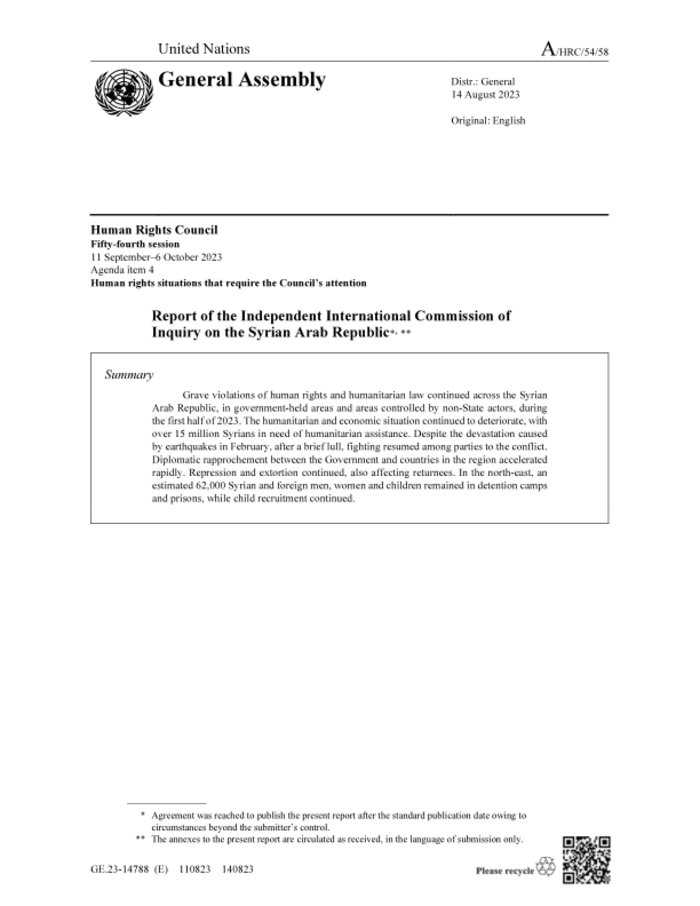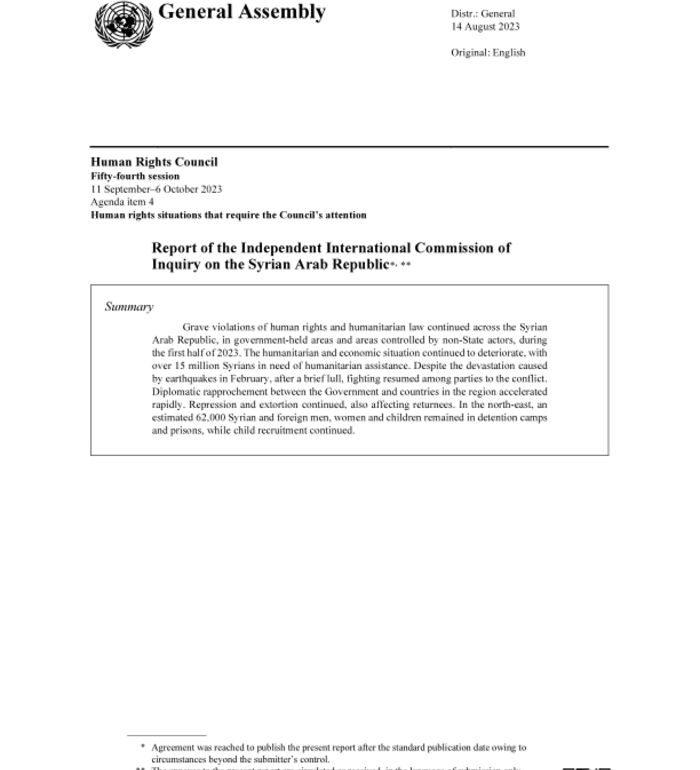
Human Rights Council
Fifty-fourth session
11 September–6 October 2023
Agenda item 4
Human rights situations that require the Council’s attention
Summary
Grave violations of human rights and humanitarian law continued across the Syrian Arab Republic, in government-held areas and areas controlled by non-State actors, during the first half of 2023. The humanitarian and economic situation continued to deteriorate, with over 15 million Syrians in need of humanitarian assistance. Despite the devastation caused by earthquakes in February, after a brief lull, fighting resumed among parties to the conflict.
Diplomatic rapprochement between the Government and countries in the region accelerated rapidly. Repression and extortion continued, also affecting returnees. In the north-east, an estimated 62,000 Syrian and foreign men, women and children remained in detention camps and prisons, while child recruitment continued.
I. Mandate and methodology
1. The present report of the Independent International Commission of Inquiry on the Syrian Arab Republic covers the period from 1 January to 30 June 2023. Pursuant to its established methodology and guided by standard practices of commissions of inquiry and human rights investigations, the report is based on 447 first-hand interviews, conducted either in person or remotely. In addition, documents, reports, forensic pathology analysis,
photographs, videos and satellite imagery from multiple sources were collected and analysed. The Commission also requested, in writing and during meetings, information on incidents, events and developments from the Government of the Syrian Arab Republic, parties to the conflict and States Members of the United Nations.
2. The standard of proof was deemed met when the Commission had reasonable grounds to believe that incidents occurred as described and, where possible, that violations were committed by the identified party. Furthermore, when the Commission has reasonable grounds to believe that conduct that would entail individual criminal responsibility has occurred, it generally attributes such conduct to a party to the conflict, as the Commission itself is not a judicial or quasi-judicial entity and therefore does not make determinations in its reports concerning the alleged criminal conduct of specific individuals.
3. The Commission’s investigations remain curtailed by the denial of access to the Syrian Arab Republic and by protection concerns in relation to interviewees. Guided by the principle of “do no harm”, details that could identify interviewees have been omitted. The Commission thanks those who provided information, particularly victims and witnesses.
This post was originally published on this site be sure to check out more of their content.







